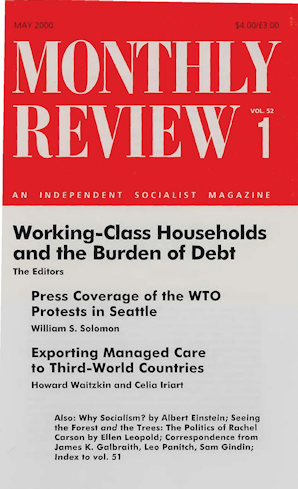Also in this issue
Article by James K. Galbraith
- Social Justice and Globalization: Are they Compatible?
- Violence as a Tool of Order and Change: The War on Terrorism and the Antiglobalization Movement
- Anti-Capitalism and the Terrain of Social Justice
- Renewing Socialism
- Rekindling Socialist Imagination: Utopian Vision and Working-Class Capacities
- The State in a Changing World: Social-Democratizing Global Capitalism?

